The Power of Optimism in Trials: Inspiring Stories from the Prophet’s Seerah
Despair is a psychological state that overtakes a person during times of severe trials, tribulations, and the overwhelming dominance of enemies and oppressors. Despair can lead a person to hopelessness and the loss of all hope. Ibn Hajar stated, “Despair can be accompanied by an even more severe condition: the firm belief that no mercy will ever reach the person. This is true hopelessness (qunūṭ), as indicated by the verse: {But when harm touches him, he gives up all hope and is lost in despair} (Fussilat: 49).”
Allah Almighty has forbidden despair and hopelessness, warning against them. He says, {And who despairs of the mercy of his Lord except those who are astray?} (Al-Hijr: 56). And He also says, {Indeed, no one despairs of relief from Allah except the disbelieving people} (Yusuf: 87). Ibn Kathir commented, “Prophet Jacob (peace be upon him) urged his sons to go out into the land and seek news of Joseph and his brother Benjamin. He encouraged them, giving them glad tidings, and commanded them not to despair of Allah’s mercy. Meaning, they should not cut off their hope and expectation from Allah in what they sought and desired. For no one cuts off hope in Allah except the disbelieving people.”
Our Prophet ﷺ was always optimistic in all matters, trusting in his Lord at all times, and maintaining a positive assumption about Allah in all circumstances. Despite the hardships and trials in his life, it was filled with hope, optimism, and strong faith in Allah’s help and victory. He constantly gave his companions glad tidings of victory, security, and wealth, even when they were enduring trials, poverty, and weakness.
It is narrated by ʿAdi ibn Hatim (may Allah be pleased with him) that he said: "While I was with the Messenger of Allah (peace and blessings be upon him), a man came and complained about poverty, and another came and complained about the danger on the roads. The Prophet said: 'O ʿAdi! Have you seen Al-Hira (the city of Arab kings under Persian rule)?' I replied, 'I have not seen it, but I have been informed about it.' He said, 'If you live long enough, you will see a woman traveling from Al-Hira to perform Tawaf around the Ka'bah without fearing anyone but Allah.' I said to myself, 'What about the robbers from the tribe of Taiy’ who spread terror throughout the land?' Then the Prophet ﷺ said, 'If you live long enough, you will see the treasures of Kisra (Chosroes) opened.' I asked, 'Kisra, son of Hormuz?' He replied, 'Yes, Kisra, son of Hormuz! And if you live long enough, you will see a man filling his hands with gold or silver, seeking someone to accept it from him, but he will find no one to take it.'" (Reported by al-Bukhari).
Additionally, it is narrated by Khabbab ibn al-Aratt (may Allah be pleased with him) that he said: "We complained to the Messenger of Allah ﷺ while he was reclining in the shade of the Ka'bah, wrapped in his cloak. We said to him: 'Will you not seek help for us? Will you not supplicate to Allah for us?' He replied: 'Among the people before you, a man would be dug into the ground, and a saw would be placed on his head and it would be split into two halves, yet that would not turn him away from his religion. Iron combs would tear the flesh off his bones and nerves, but that would not make him abandon his religion. By Allah, this matter (Islam) will be completed, and a traveler will go from Sana’a to Hadhramaut fearing none but Allah, or a wolf for his sheep, but you are being impatient.'" (Reported by al-Bukhari).
The life of the Prophet ﷺ is filled with events and moments that illustrate his immense optimism, hope, unwavering trust, and certainty in Allah’s victory. These qualities were not only exemplified by him but also instilled in his companions and Muslims who followed. One such example is the incident of the Prophet’s migration (Hijrah).
During the Hijrah from Mecca to Medina, the Prophet ﷺ took all the necessary and available precautions. Yet, the disbelievers pursued him, tracking the routes and searching the mountains, until they reached the cave of Thawr where the Prophet and his companion were hiding. The footsteps and voices of the pursuers became audible, and at that moment, Abu Bakr (may Allah be pleased with him) feared for the safety of the Prophet ﷺ— a natural reaction under the circumstances. Abu Bakr said: "If any of them were to look down at his feet, he would see us!" To which the Prophet ﷺ responded: "O Abu Bakr! What do you think of two, the third of whom is Allah?" (Reported by al-Bukhari).
Imam al-Nawawi explained: "The meaning of ‘third of whom is Allah’ is that Allah is with them, granting them victory and assistance." Ibn al-Jawzi similarly commented: "The Prophet’s statement, ‘What do you think of two, the third of whom is Allah,’ means with victory and help. Do you think He would forsake them? He redirected Abu Bakr's attention from focusing on the visible causes to the One who causes all things (Allah)."
The Battle of Badr: Despite the overwhelming disparity in military strength during the Battle of Badr—where the Quraysh army numbered around one thousand, with two hundred horses, compared to the Muslim forces of about three hundred and a few, possessing only two horses—the Prophet ﷺinstilled hope, optimism, and unwavering certainty in Allah’s victory within his companions. Though they were fewer in number and resources than their enemy, the Prophet said to them: “March forward and receive glad tidings, for Allah has promised me one of the two groups. By Allah, it is as if I can already see the places where the enemy will fall” (reported in Sahih al-Bukhari).
The Battle of the Trench (Al-Ahzab): In the Battle of the Trench, the Muslims faced immense challenges—exhaustion from digging the trench, hunger, fear, severe cold, the siege by the Quraysh and their allies, betrayal by the Jews, and the undermining efforts and false rumors spread by the hypocrites. The hardship was so severe that Allah described their state: {O you who have believed, remember the favor of Allah upon you when armies came [against you] and We sent upon them a wind and armies you did not see. And ever is Allah, of what you do, Seeing * [Remember] when they came at you from above you and from below you, and when eyes shifted [in fear], and hearts reached the throats, and you assumed about Allah [various] assumptions * There the believers were tested and shaken with a severe shaking} (Al-Ahzab: 9–11).
Despite all these trials, the Prophet ﷺ continued to instill hope, optimism, and trust in Allah’s help within his companions. He promised them the conquest of Syria, Persia, and Yemen. Al-Bara' ibn Azib (may Allah be pleased with him) narrated: "The Messenger of Allah ﷺ ordered us to dig the trench. While we were digging, a large rock blocked our progress, and we complained to the Prophet. He came, took a pickaxe, and said: 'In the name of Allah,' then struck the rock, breaking off a third of it, and said: 'Allahu Akbar (Allah is the Greatest)! I have been given the keys of Syria, and by Allah, I can see its red palaces from here.' Then he struck it again and broke another third, saying: 'Allahu Akbar! I have been given the keys of Persia, and by Allah, I can see the white palace of Madain from here.' Then he struck it a third time, breaking the rest of the rock, and said: 'Allahu Akbar! I have been given the keys of Yemen, and by Allah, I can see the gates of Sana’a from here'" (reported by Ahmad).
When the Prophet ﷺ gave his companions these glad tidings, the hypocrites scoffed, saying: "Muhammad is promising us the treasures of Kisra and Caesar, while none of us feels safe enough to even go out to relieve himself!" Yet despite their mockery, Allah granted the Muslims a great victory in the Battle of the Trench, and everything the Prophet ﷺ promised came true.
This account showcases the Prophet’s unwavering faith in Allah’s promise and his ability to inspire confidence and optimism in his companions, even in the most dire of circumstances.
The Battle of Khaybar:
Anas (may Allah be pleased with him) narrated that the Prophet ﷺ set out for Khaybar, arriving there at night. Whenever he reached a place at night, he would not attack until morning. When morning came, the Jews came out with their agricultural tools and saw the Prophet ﷺ and his army. They exclaimed, “Muhammad and his army!” The Prophet ﷺ said, “Allahu Akbar! Khaybar is ruined! When we descend into the courtyard of a people, it is a terrible morning for those who have been warned” (reported by al-Bukhari).
In his commentary, Ibn Hajar mentioned in Fath al-Bari: “Al-Suhayli stated that optimism can be derived from this hadith, as the Prophet (peace and blessings be upon him), upon seeing the tools of destruction (agricultural tools), inferred that their city would be ruined.”
The life of the Prophet ﷺ is filled with events that bring glad tidings, inspire optimism, renew hope, strengthen certainty, and affirm that our Ummah will be granted empowerment and victory, despite the trials and tribulations it may endure at various times. The Prophet (peace and blessings be upon him) said: "Indeed, Allah has folded the earth for me so that I saw its eastern and western parts, and the dominion of my Ummah will reach what has been folded for me" (Reported by Muslim).
Optimism and hope were part of the Prophet’s ﷺ guidance. They served as a beacon of light illuminating the path, a dawn breaking through the darkness of trials and hardships. The ﷺ instilled in his companions the belief that trials and tribulations are like passing clouds that will soon disappear by Allah’s grace and mercy. Allah says: {For indeed, with hardship [will be] ease * Indeed, with hardship [will be] ease} (Ash-Sharh: 5-6). Allah says: {Allah will bring about, after hardship, ease} (At-Talaq: 7). The Prophet (peace and blessings be upon him) also said: 'Indeed, relief accompanies distress, and with hardship comes ease.'"
Thus, every difficulty will soon be followed by relief. Allah, the Almighty, holds the decrees of all matters, and He is the One who removes harm and brings ease after hardship, and relief after distress, providing an escape from every crisis and trial. Allah says: {Until, when the messengers despaired and thought that they had been denied, Our victory came to them, and whoever We willed was saved. And Our punishment cannot be repelled from the wicked people} (Yusuf: 110).
However, the glad tidings and hope found in the life and guidance of the Prophet ﷺ do not imply passive resignation to trials, waiting for relief to come. Rather, the purpose is to view trials and hardships with an eye of hope that drives action, not despair that leads to defeat and inactivity. Therefore, the believer remains steadfast in their faith, fulfilling their duty in striving for the victory of Islam, even if trials and hardships abound. Allah says: {Rejoicing in the bounty from Allah and favor, and that Allah does not let the reward of the believers be lost} (Aal-Imran: 171), and He also says: {And prepare against them whatever you are able of power and of steeds of war} (Al-Anfal: 60).
The life of the Prophet ﷺ is rich with educational moments and events that we need to draw from and be guided by in our own lives. Allah says: {There has certainly been for you in the Messenger of Allah an excellent example for anyone whose hope is in Allah and the Last Day and who remembers Allah often} (Al-Ahzab: 21). Ibn Kathir commented: "This verse is a great principle in following the example of the Prophet (peace and blessings be upon him) in his words, deeds, and conditions. Therefore, people are commanded to follow his example, especially during the Battle of the Trench, in his patience, perseverance, steadfastness, struggle, and his awaiting of relief from his Lord, the Almighty."
(Translated from an article published on Islamweb.net in Arabic)
Disclaimer
The views expressed in this article are the author’s own and do not necessarily mirror Islamonweb’s editorial stance.

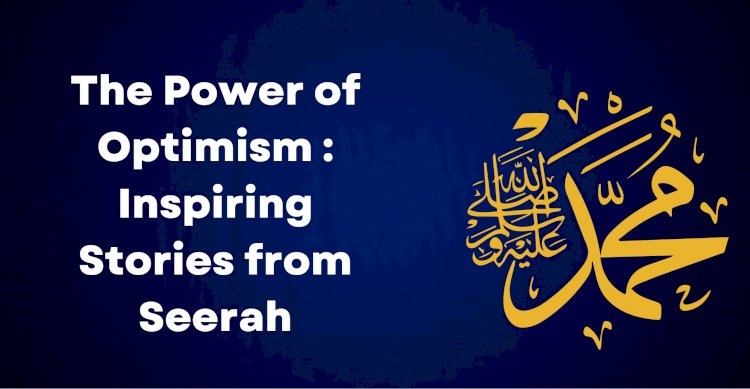



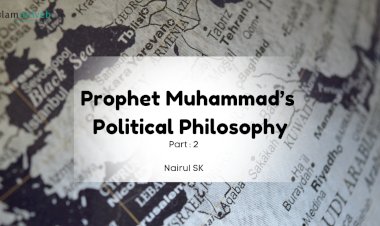
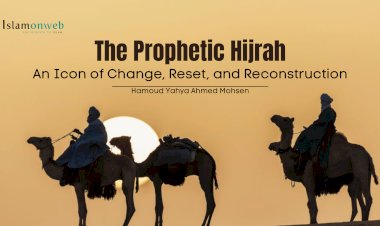
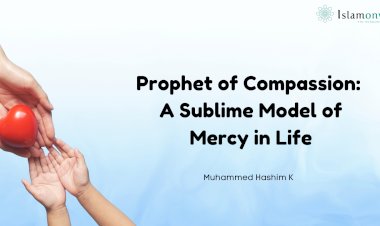
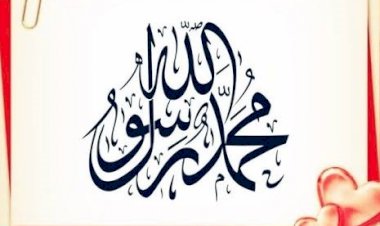














Leave A Comment